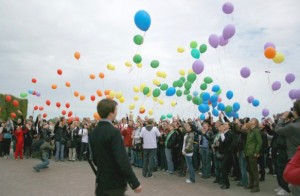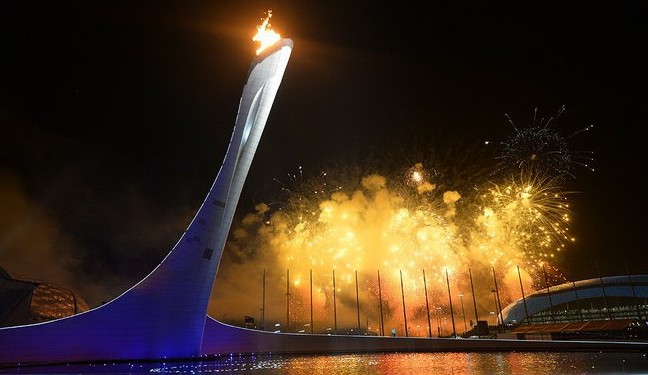The opening ceremony for the 2014 Winter Olympics was, without a doubt, beautiful, and one would hope so, considering the whopping $50 billion spent on the games this year. Stunning aesthetics aside, I found myself unable to ignore the elephant in the room: Article 6.21.
The law was enacted on June 30, 2013 after being signed by Russian President Vladimir Putin and passing the Duma with a unanimous vote of 436-0. Article 6.21 outlaws the propaganda of non-traditional sexual relations among minors. Specifically, “the propaganda of non-traditional sexual relations among minors expressed in distribution of information that is aimed at the formation among minors of non-traditional sexual attitudes, attractiveness of non-traditional sexual relations, misperceptions of the social equivalence of traditional and non-traditional sexual relations, or enforcing information about non-traditional sexual relations that evokes interest to such relations.” If reported or discovered, persons taking part in the above actions are punishable by law with varying degrees of punishment based on citizenship and status (individual vs. organization).
Uproar over Article 6.21 has significantly increased in light of the Winter Olympics, as there are athletes with various sexual and cultural identities traveling to Sochi who feel unwelcome, to say the least, as a result of the new law.
The international response was quite clear. Presidents abandoned the games. Countries sent gay delegates. Athletes wore rainbow outfits. Perhaps most importantly, Google’s banner featured the colors of the LGBTQ+ movement.

Conversely, there is also an air of defensive cultural relativism here. Perhaps we are expecting too much of Russia in putting western notions of LGBTQ+ rights on the table. I’m not so sure I buy this argument. Both the International Lesbian, Gay, Bisexual, Trans and Intersex Association (ILGA) and the Russian LGBT Network have also expressed their anger at Putin’s decision to push Article 6.21, thus dispelling the myth that we are forcing Western values on others.
When you yourself are not a protector or adherent of human rights, it is easy to chalk up the difference to culture and thus make light of a deeper issue. And that’s exactly what has happened here.
We can dissect this situation with a few different lenses in mind. From a public policy perspective, Article 6.21 is simply not beneficial to society as a whole.
First, the law defines neither the term “propaganda” nor the phrase “non-traditional sexual relations.” It is vague and ambiguous, yet the penalties are relatively large. Law must be explicit, letting people know exactly what they can and cannot do. Second, the law is overtly targeting a particular group of people in a harmful manner. Under Article 6.21 you cannot even admit that being gay is acceptable, much less profess your belief that homosexual citizens are equal to heterosexual citizens. Furthermore, recent attacks suggest that the government’s thumbs-down approach toward LGBTQ+ rights has perhaps given anti-gay gangs the thumbs-up on violence. Third, there is no clear basis for the law. Opposition to homosexuality almost entirely comes from religion. Separation of church and state is an established practice, and a successful one at that. Government-backed religious views can lead a nation down a slippery slope, one that often ends in religious oppression and, later, rebellion. Religion might call homosexuality immoral, but the government is not a religious entity.
Acceptance and endorsement are two entirely separate paths, both of which Putin rejects. Article 6.21 is problematic any minute of any day, but it seems more problematic now, when it directly affects citizens of other nations who have traveled to Sochi for the unrelated purpose of demonstrating their athletic prowess.
